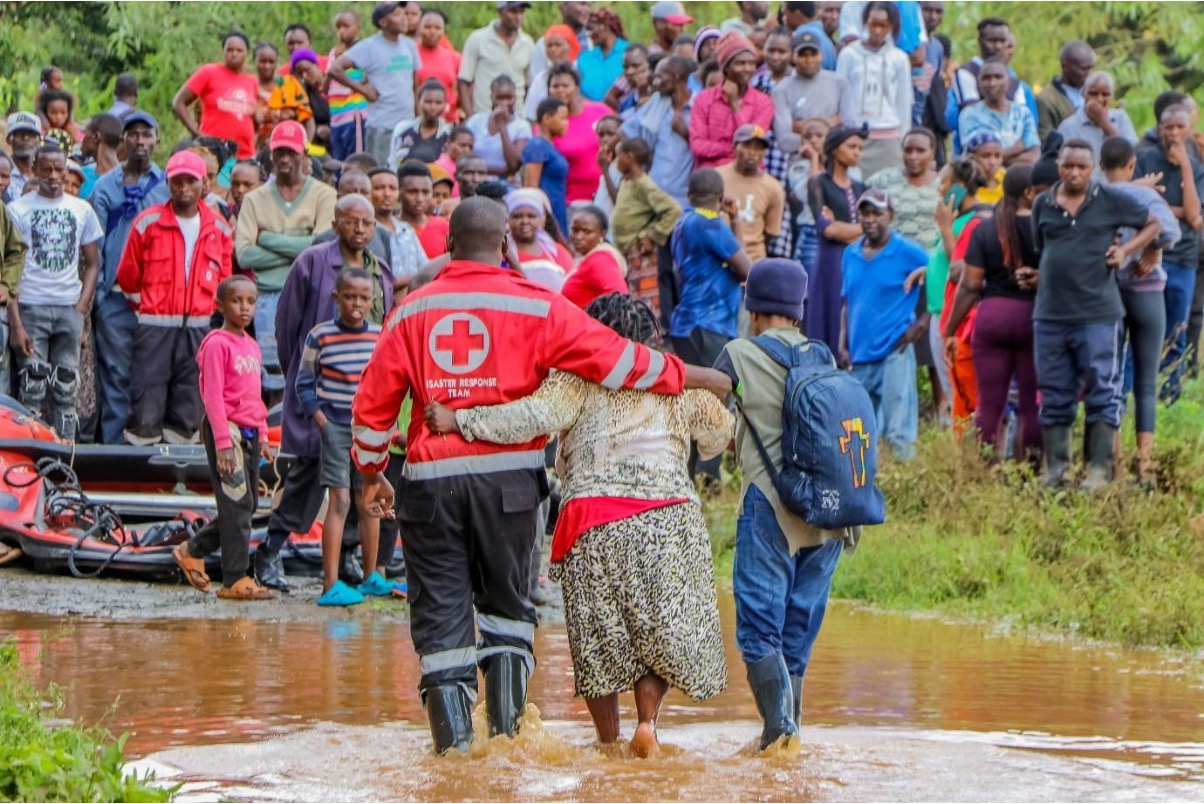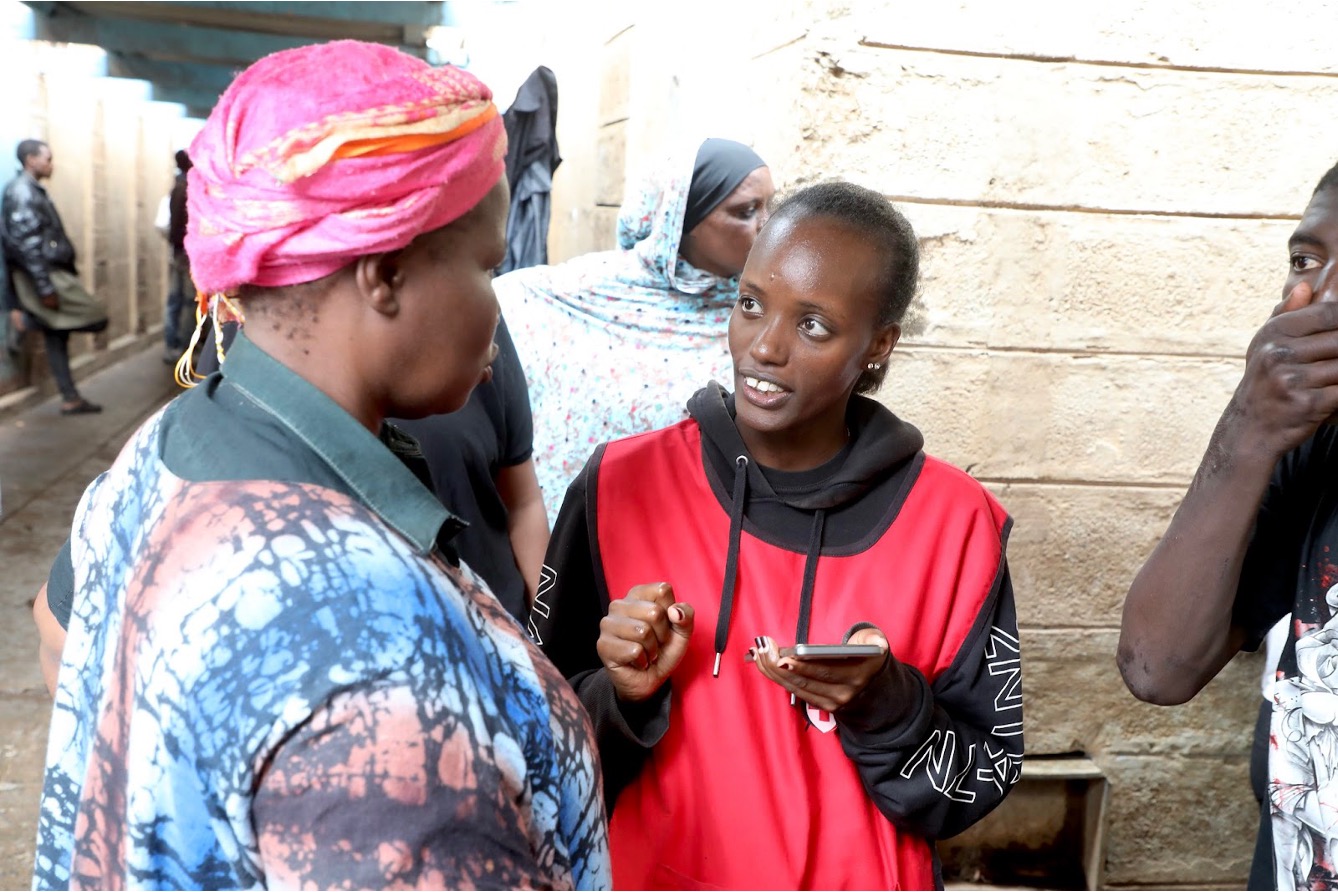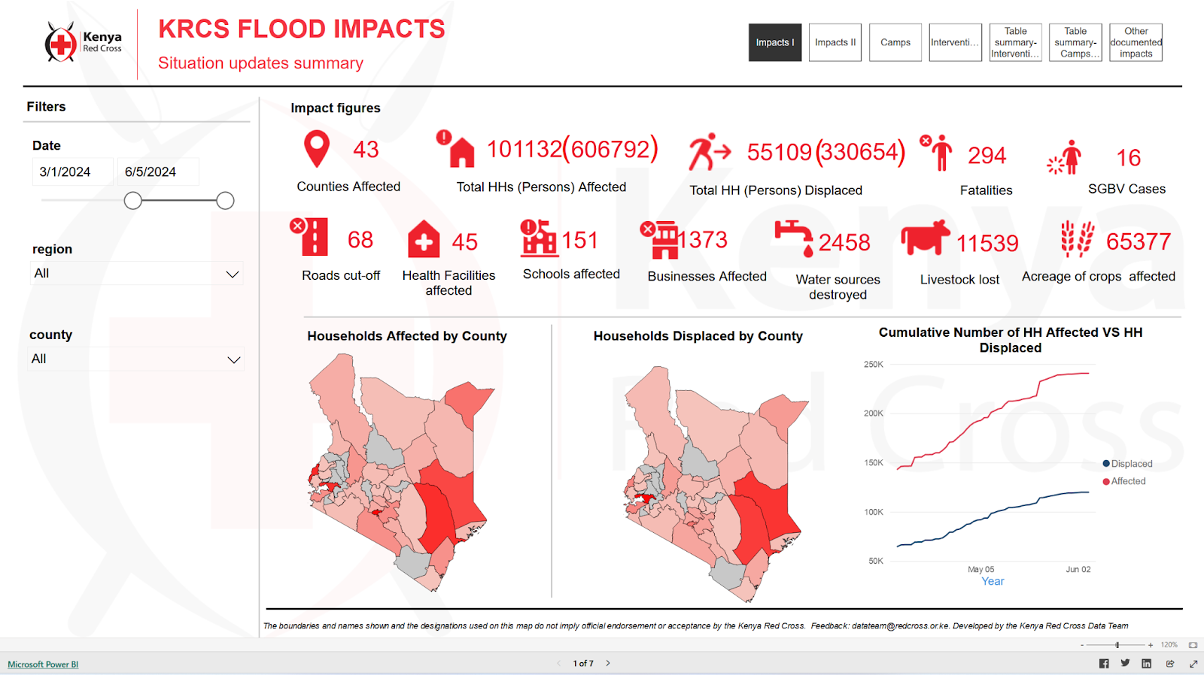Beyond the technology
Data-driven climate disaster response: How the Kenya Red Cross Society is using KoboToolbox in the flooding crisis
As of May 2024, the flooding crisis in Kenya has impacted over 220,000 people across the country, displacing more than 41,000 families and resulting in 219 deaths. Having recently recovered from the devastating effects of El Niño in 2023, which displaced over 500,000 households and caused 174 deaths, the country remains vulnerable to climate shocks despite ongoing resilience building efforts. Kenya now faces its annual major rainfall season from March to May, often extending into June. The long rains season, also referred to as the MAM rains, has already affected 80% of the country with extreme rainfalls, flash floods, and landslides. These conditions have disrupted lives and livelihoods nationwide, impeding healthcare delivery, destroying crops and livestock, and interrupting access to education.

To support communities facing climate-related disasters, the Kenya Red Cross Society (KRCS) is using KoboToolbox to lead humanitarian efforts to deliver aid to vulnerable populations and respond to emergencies. As flooding intensifies during the season, KRCS is monitoring the crisis with real-time data and addressing increased needs in affected communities by distributing essential supplies and coordinating search and rescue missions.
Using KoboToolbox, KRCS has developed a Flood Situation Report (SitRep) Tool to gather crucial data on the impact of the floods and ongoing response initiatives. First deployed during the 2023 El Niño period, the tool proved immediately effective. With KoboToolbox’s offline capabilities, the Flood SitRep Tool enables KRCS staff and volunteers to collect comprehensive data in remote areas and leverage real-time information sharing to deliver targeted interventions.
To streamline the data collection process, the KRCS team created highly customized survey forms using KoboToolbox’s cascading select questions and skip logic functions. The forms are designed to optimize accuracy and reduce survey fatigue by ensuring that respondents are only asked relevant questions. To fully understand the complex needs and experiences of communities, information is collected for key indicators, including the number of affected and displaced people and the impact on critical infrastructure like schools, health facilities, and roads. The reporting tool is also used to support data-informed coordination and monitor interventions in food distribution, health and social services, shelter, and WASH (Water, Sanitation, and Hygiene).

The implementation of the KoboToolbox SitRep Tool has resulted in a more efficient data-driven response. Previously, data collection practices were fragmented, with different departments independently gathering information, hindering timely insights. The new reporting tool centralizes the data and increases accuracy by using standardized question templates. By capturing detailed and specific information on needs and response activities, the KRCS team is able to generate vital insights to provide assistance where it is needed most. Leveraging KoboToolbox’s API for data visualization with Power BI, daily updates are communicated to key stakeholders, ensuring that crucial information is readily available.
To date, the flood reporting tool has received over 800 submissions from 43 affected communities. The KRCS team will continue making improvements to the tool based on lessons learned, supporting their data collection initiatives in the future. Access to reliable real-time data on flooding has been crucial for KRCS and its partners to enhance service delivery through effective information sharing and data-driven interventions. With accurate insights and timely coordination, KRCS is equipped to better understand the evolving needs of communities and target response activities to maximize their impact. Looking ahead, KRCS will continue to improve the tool and leverage KoboToolbox’s technology to conduct assessments and track climate-related crises, with the goal of building the resilience of vulnerable communities across Kenya.
